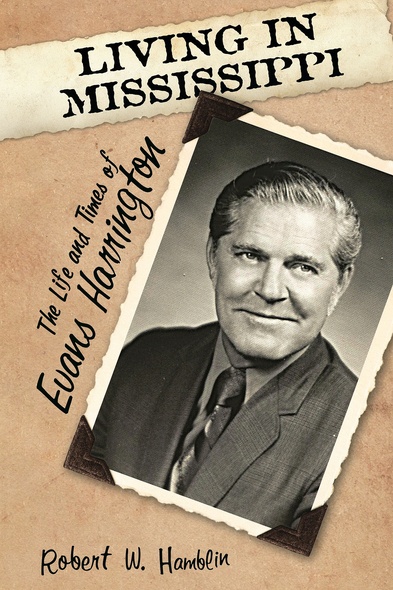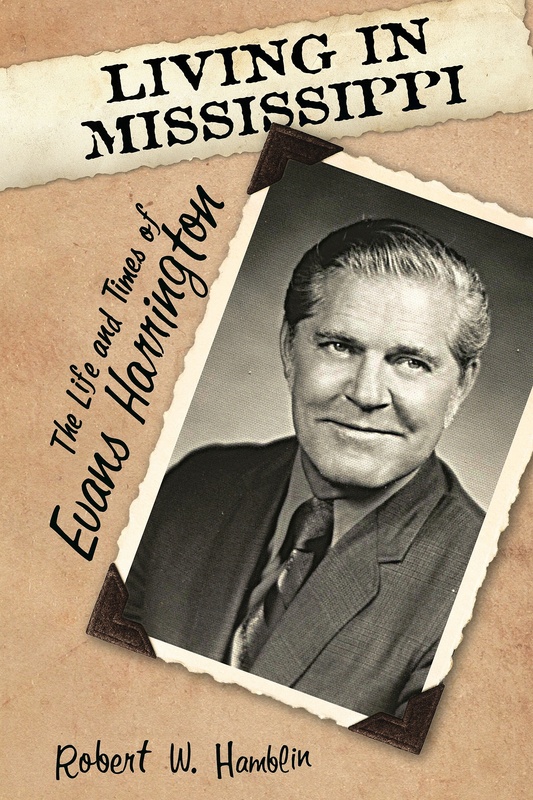
Living in Mississippi
The Life and Times of Evans Harrington
Robert W. Hamblin elevates Evans Harrington (1925–1997), as well as his remarkable achievements and writings, introducing his legacy to a new generation. Harrington continually found himself in conflict with the conservative, and often reactionary, institutions of his society—be they educational, political, or religious. Yet unlike many Mississippi liberals and moderates of his day—white as well as black—Harrington did not leave the state for a freer environment or better opportunities elsewhere. Except for his military service, he stayed in Mississippi his entire life, and his presence made a difference.
In 1962, Harrington openly supported the enrollment of James Meredith, the first African American student to attend Ole Miss. In 1965, he invited African American students from Tougaloo College to attend the Southern Literary Festival hosted by Ole Miss—the first meeting of that organization to be integrated. In 1972, as faculty sponsor of Images, the Ole Miss literary journal, he joined his student writers in a successful suit against the university’s attempt to suppress an issue of the magazine that contained controversial content. In 1996, Harrington united with other ACLU members to support the cause of Lisa Herdahl, who had brought suit against the North Pontotoc, Mississippi, School Board for allowing sectarian prayers and devotionals in public school classrooms. Hamblin presents these and other examples, showing Harrington both as an exception to and as a representative figure of his time and place.
This biography also explores Harrington and his writings, which include “Living in Mississippi,” a personal essay about being a white liberal in segregated Mississippi; several short stories; a novel, The Prisoners; and three popular novels issued under the pseudonym Gilbert Terrell: Willa, Missy, and Lily, as well as a number of unpublished manuscripts. Harrington also coedited, with Ann J. Abadie, four volumes of papers presented at the annual Faulkner and Yoknapatawpha Conference, which he cofounded.
Living in Mississippi makes clear how tirelessly Harrington served, surveys how much he wrote, and raises hope that he will be quoted much in years to come.
Hamblin’s Living in Mississippi: The Life and Times of Evans Harrington is a fine guide to a life and work that captures the state of mind both of its subject and his country. It is the book long-awaited and encouraged by notables Ann Abadie and Gerald Walton. It’s all here, from one of the people who knew Harrington best, and its timing could not be more appropriate. Hamblin, himself, was there for it all—there on the day Ole Miss erupted over James Meredith and Harrington helped keep the peace, there as one of the wisest of Faulkner scholars who took his degree at Ole Miss where Harrington taught and later chaired, there as friend and witness. He draws on extensive study, close acquaintance, and the kind of memory that comes from the times we’d sit around the Harrington living room, plates in our laps and only ‘the best of all talk' keeping us from eating too much and too fast.
This intelligently written study evokes well the talent, strength, and charm of Evans Harrington, a key figure during a critical time in the history of Ole Miss.
Robert W. Hamblin is professor emeritus of English and founding director of the Center for Faulkner Studies at Southeast Missouri State University. He has authored or edited nineteen books on Faulkner, including A William Faulkner Encyclopedia; Myself and the World: A Biography of William Faulkner, published by University Press of Mississippi; and My Life with Faulkner and Brodsky.





